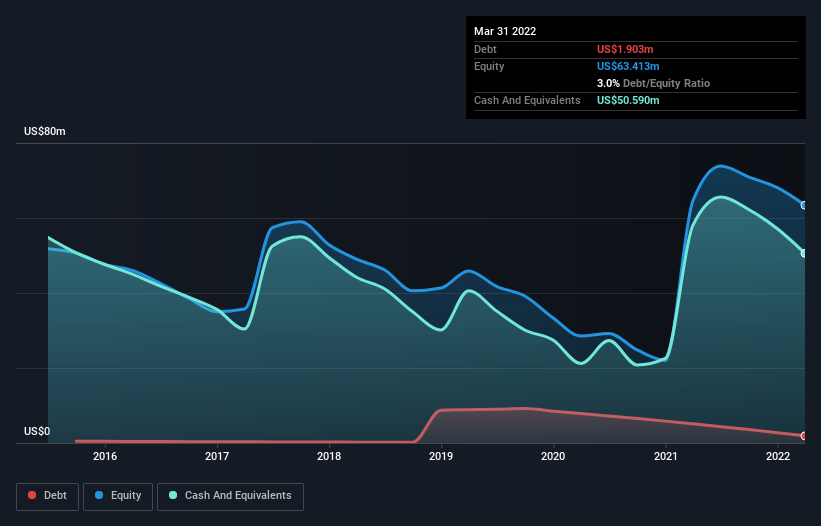The external fund manager backed by Berkshire Hathaway's Charlie Munger, Li Lu, makes no bones about it when he says 'The biggest investment risk is not the volatility of prices, but whether you will suffer a permanent loss of capital.' So it might be obvious that you need to consider debt, when you think about how risky any given stock is, because too much debt can sink a company. Importantly, BioLineRx Ltd. (TLV:BLRX) does carry debt. But the more important question is: how much risk is that debt creating?
When Is Debt Dangerous?
Debt assists a business until the business has trouble paying it off, either with new capital or with free cash flow. Ultimately, if the company can't fulfill its legal obligations to repay debt, shareholders could walk away with nothing. While that is not too common, we often do see indebted companies permanently diluting shareholders because lenders force them to raise capital at a distressed price. Of course, debt can be an important tool in businesses, particularly capital heavy businesses. The first step when considering a company's debt levels is to consider its cash and debt together.
See our latest analysis for BioLineRx
How Much Debt Does BioLineRx Carry?
As you can see below, BioLineRx had US$1.90m of debt at March 2022, down from US$5.11m a year prior. But on the other hand it also has US$50.6m in cash, leading to a US$48.7m net cash position.

How Strong Is BioLineRx's Balance Sheet?
We can see from the most recent balance sheet that BioLineRx had liabilities of US$9.10m falling due within a year, and liabilities of US$2.26m due beyond that. On the other hand, it had cash of US$50.6m and US$190.0k worth of receivables due within a year. So it can boast US$39.4m more liquid assets than total liabilities.
This surplus strongly suggests that BioLineRx has a rock-solid balance sheet (and the debt is of no concern whatsoever). On this view, lenders should feel as safe as the beloved of a black-belt karate master. Succinctly put, BioLineRx boasts net cash, so it's fair to say it does not have a heavy debt load! The balance sheet is clearly the area to focus on when you are analysing debt. But ultimately the future profitability of the business will decide if BioLineRx can strengthen its balance sheet over time. So if you're focused on the future you can check out this free report showing analyst profit forecasts.
Since BioLineRx doesn't have significant operating revenue, shareholders may be hoping it comes up with a great new product, before it runs out of money.
So How Risky Is BioLineRx?
We have no doubt that loss making companies are, in general, riskier than profitable ones. And in the last year BioLineRx had an earnings before interest and tax (EBIT) loss, truth be told. Indeed, in that time it burnt through US$23m of cash and made a loss of US$22m. Given it only has net cash of US$48.7m, the company may need to raise more capital if it doesn't reach break-even soon. Overall, its balance sheet doesn't seem overly risky, at the moment, but we're always cautious until we see the positive free cash flow. The balance sheet is clearly the area to focus on when you are analysing debt. But ultimately, every company can contain risks that exist outside of the balance sheet. For example BioLineRx has 5 warning signs (and 1 which shouldn't be ignored) we think you should know about.
Of course, if you're the type of investor who prefers buying stocks without the burden of debt, then don't hesitate to discover our exclusive list of net cash growth stocks, today.
Valuation is complex, but we're here to simplify it.
Discover if BioLineRx might be undervalued or overvalued with our detailed analysis, featuring fair value estimates, potential risks, dividends, insider trades, and its financial condition.
Access Free AnalysisHave feedback on this article? Concerned about the content? Get in touch with us directly. Alternatively, email editorial-team (at) simplywallst.com.
This article by Simply Wall St is general in nature. We provide commentary based on historical data and analyst forecasts only using an unbiased methodology and our articles are not intended to be financial advice. It does not constitute a recommendation to buy or sell any stock, and does not take account of your objectives, or your financial situation. We aim to bring you long-term focused analysis driven by fundamental data. Note that our analysis may not factor in the latest price-sensitive company announcements or qualitative material. Simply Wall St has no position in any stocks mentioned.
About TASE:BLRX
BioLineRx
A commercial stage biopharmaceutical company, develops and commercializes therapeutics for oncology and rare diseases.
Excellent balance sheet with slight risk.
Market Insights
Community Narratives




